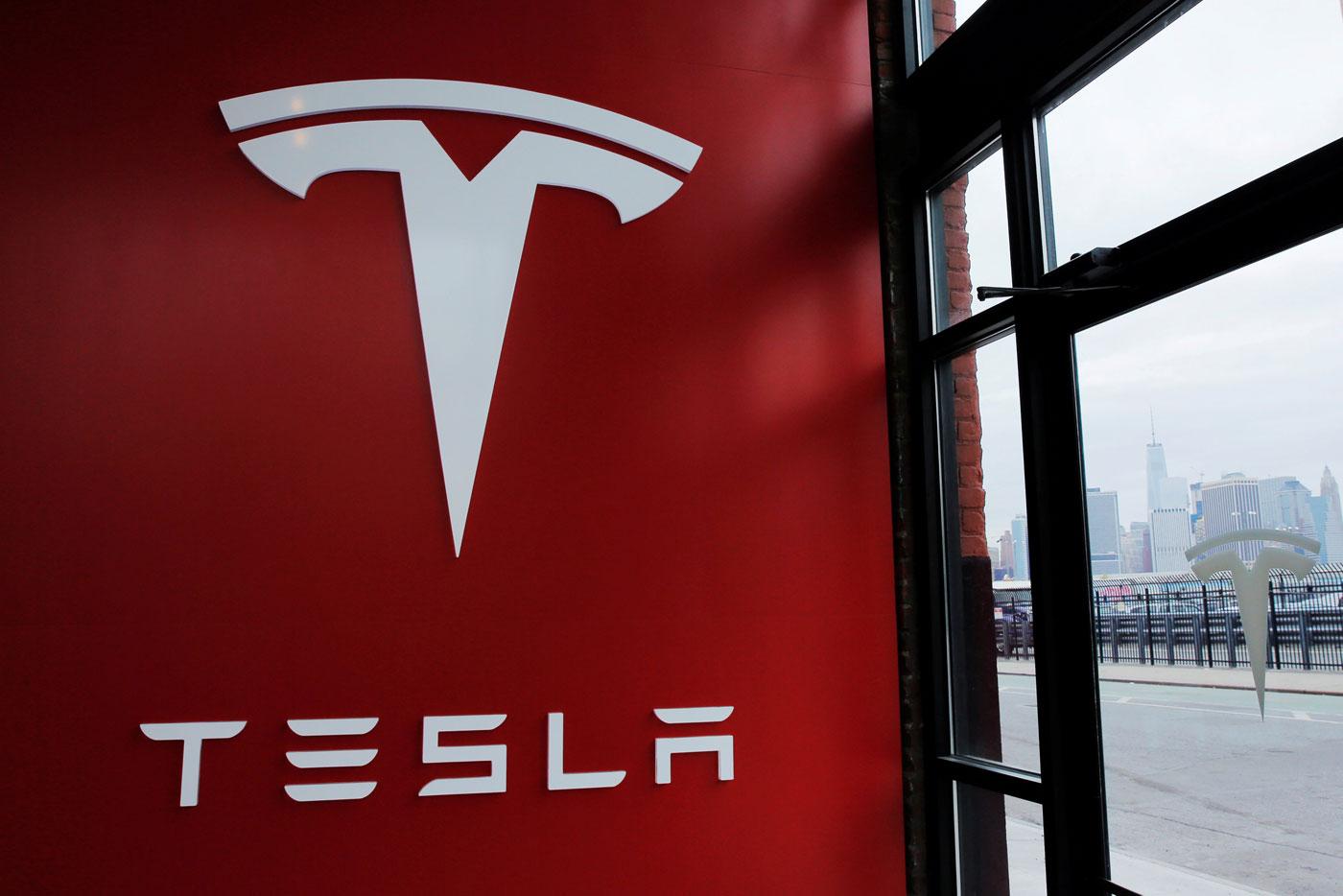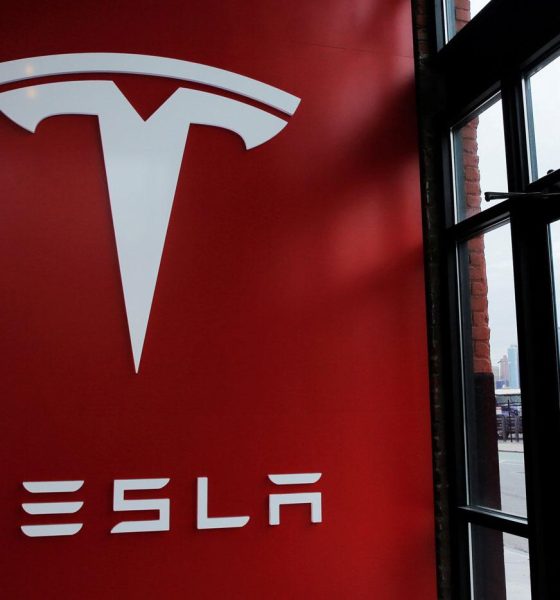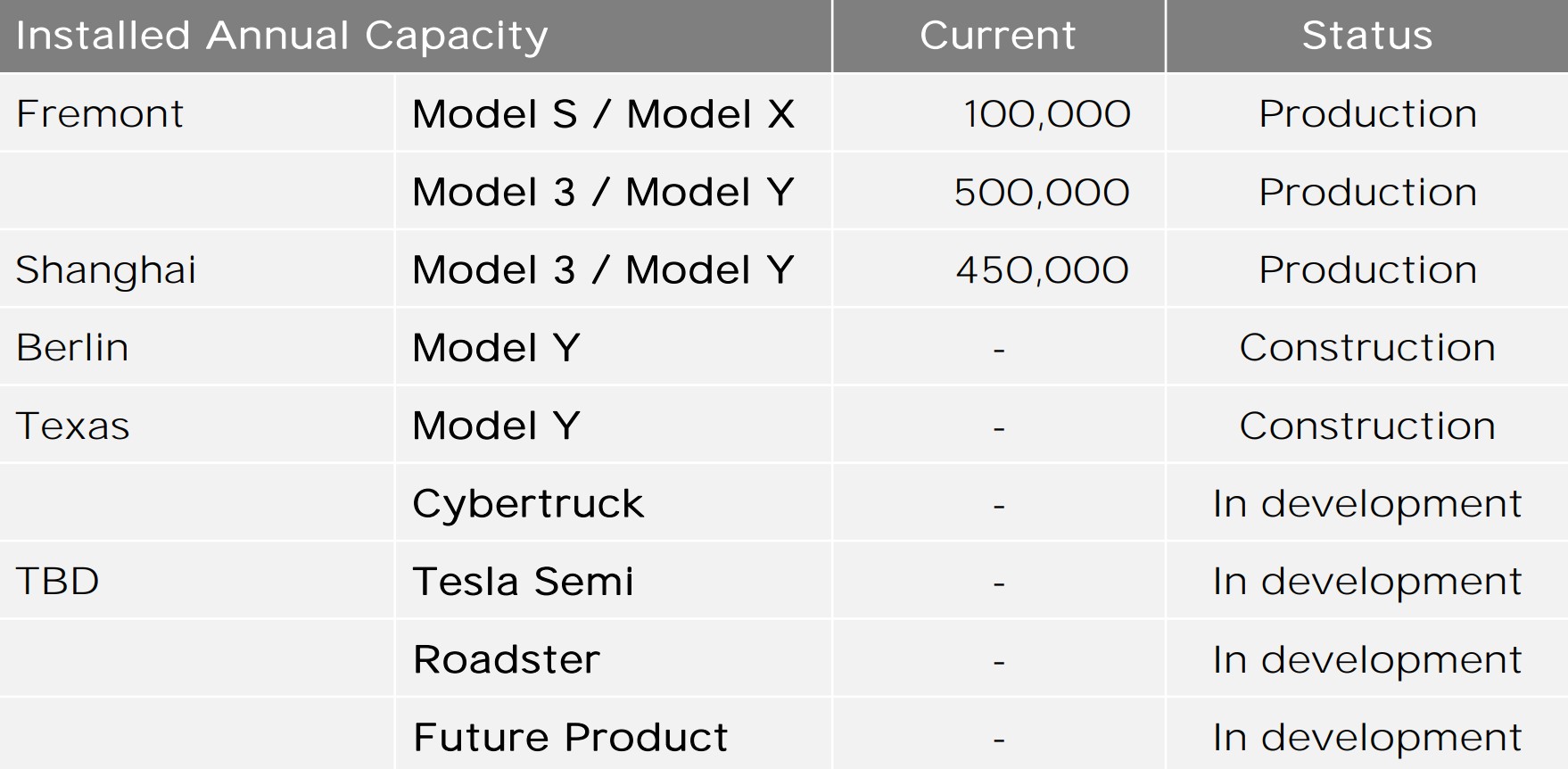

Investor's Corner
Tesla investor who predicted 2020 stock surge unloads shares
Tesla investor Gary Black, a former Bernstein analyst, has decided to offload his Tesla shares after accurately predicting the over 700% surge in the automaker’s stock price in 2020. Black announced this morning that the “absence of clear FY’21 delivery guidance,” and other factors were the reason for his decision.
Black posted a Tweet on Monday morning announcing that he has exited his TSLA positions after being a long-term shareholder since August 2019. In addition to Tesla’s undefined delivery guidance for 2021, “increased odds of a 1Q miss, and a more risky capital allocation policy/higher earnings variability were the primary factors,” he said.
Disclosure: I have exited my $TSLA positions after being long since August 2019. The absence of clear FY’21 delivery guidance, increased odds of a 1Q miss, and a more risky capital allocation policy/higher earnings variability were the primary factors.
— Gary Black (@garyblack00) February 8, 2021
In other tweets, Black explained his distaste of the company’s decision to invest in Bitcoin. “It’s a small risk from a valuation standpoint,” he said. “On the other hand, it adds more volatility to TSLA’s earnings stream, and may highlight a change in risk tolerance within $TSLA.”
I have to think about it and will try to speak with the company. At a $1.5B maximum loss ($1.30/share), it’s a small risk from a valuation standpoint. On the other hand, it adds more volatility to TSLA’s earnings stream, and may highlight a change in risk tolerance within $TSLA.
— Gary Black (@garyblack00) February 8, 2021
Black bought Tesla shares in August 2019 due to the expanding electric vehicle market, and Tesla had proven itself to be the most likely company to dominate the sector. With new vehicles that expanded across different segments, like the Cybertruck, Model Y crossover, and the Semi, along with the company’s expanding focus on battery production and affordability, it seemed like an ideal investment for Black to get involved with. He was right, as 2020 proved to be the company’s biggest year yet. It delivered just shy of 500,000 vehicles, produced over 509,000, and recorded profits in all four quarters.
Walking away with a tasty profit, Black says that he will look for a lower entry point to become a shareholder again. However, the lack of delivery guidance from Tesla during its Q4 2020 Earnings Call was something that didn’t sit well with some investors, Black being one of them.
Tesla is currently in the process of building two new production facilities: One in Germany and one in Texas. While both production plants are set to begin production in mid-2021, Tesla does not have a definitive start date for manufacturing or deliveries for either facility. Therefore, it is difficult for the company to outline an exact production or delivery rate.
The only concrete numbers Tesla offered during the Q4 Earnings session were located in its Shareholder Deck. It outlined Fremont and Giga Shanghai’s production of the Model S, Model 3, Model X, and Model Y, with a combined rate of 1,050,000 cars per year.

Credit: Tesla
But, this does not mean that Tesla will deliver that many cars. The production rate can be looked at as a “best-case scenario,” meaning if there are no production halts, malfunctions in equipment, or revisions to production lines, Tesla would likely produce 1,050,000 cars. Some analysts, like Bill Selesky of Argus, have estimated what Tesla will produce and deliver in 2021. Argus said in a note to investors that it expects Tesla to produce 952,000 cars this year.
Black added more comments regarding the company’s decision to invest in Bitcoin, and wrote:
“I go back to my criticism of $TSLA earnings calls, which already stood out for their vagueness, lack of detail, and non-discussion of strategic priorities. If $TSLA purchased $1.5B in #bitcoin in January, why not share the logic with shareholders on the earnings call?”
2/ I go back to my criticism of $TSLA earnings calls, which already stood out for their vagueness, lack of detail, and non-discussion of strategic priorities. If $TSLA purchased $1.5B in #bitcoin in January, why not share the logic with shareholders on the earnings call?
— Gary Black (@garyblack00) February 8, 2021
Disclosure: Joey Klender is a TSLA shareholder.

Elon Musk
SpaceX IPO could push Elon Musk’s net worth past $1 trillion: Polymarket
The estimates were shared by the official Polymarket Money account on social media platform X.

Recent projections have outlined how a potential $1.75 trillion SpaceX IPO could generate historic returns for early investors. The projections suggest the offering would not only become the largest IPO in history but could also result in unprecedented windfalls for some of the company’s key investors.
The estimates were shared by the official Polymarket Money account on social media platform X.
As noted in a Polymarket Money analysis, Elon Musk invested $100 million into SpaceX in 2002 and currently owns approximately 42% of the company. At a $1.75 trillion valuation following SpaceX’s potential $1.75 trillion IPO, that stake would be worth roughly $735 billion.
Such a figure would dramatically expand Musk’s net worth. When combined with his holdings in Tesla Inc. and other ventures, a public debut at that level could position him as the world’s first trillionaire, depending on market conditions at the time of listing.
The Bloomberg Billionaires Index currently lists Elon Musk with a net worth of $666 billion, though a notable portion of this is tied to his TSLA stock. Tesla currently holds a market cap of $1.51 trillion, and Elon Musk’s currently holds about 13% to 15% of the company’s outstanding common stock.
Founders Fund, co-founded by Peter Thiel, invested $20 million in SpaceX in 2008. Polymarket Money estimates the firm owns between 1.5% and 3% of the private space company. At a $1.75 trillion valuation, that range would translate to approximately $26.25 billion to $52.5 billion in value.
That return would represent one of the most significant venture capital outcomes in modern Silicon Valley history, with a growth of 131,150% to 262,400%.
Alphabet Inc., Google’s parent company, invested $900 million into SpaceX in 2015 and is estimated to hold between 6% and 7% of the private space firm. At the projected IPO valuation, that stake could be worth between $105 billion and $122.5 billion. That’s a growth of 11,566% to 14,455%.
Other major backers highlighted in the post include Fidelity Investments, Baillie Gifford, Valor Equity Partners, Bank of America, and Andreessen Horowitz, each potentially sitting on multibillion-dollar gains.
Elon Musk
Elon Musk hints Tesla investors will be rewarded heavily
“Hold onto your Tesla stock. It’s going to be worth a lot, I think. That’s my bet,” Musk said.

Elon Musk recently hinted that he believes Tesla investors will be rewarded heavily if they continue to hold onto their shares, and he reiterated that in a new interview that the company released on its social accounts this week.
Musk is one of the most successful CEOs in the modern era and has mammothed competitors on the Forbes Net Worth List over the past year as his holdings in his various companies have continued to swell.
Tesla investors, especially those who have been holding shares for several years, have also felt substantial gains in their portfolios. Over the past five years, the stock is up over 78 percent. Since February 2019, nearly seven years ago to the day, the stock is up over 1,800 percent.
Musk said in the interview:
“Hold onto your Tesla stock. It’s going to be worth a lot, I think. That’s my bet.”
Elon Musk in new interview: “Hold on to your $TSLA stock. It’s going to be worth a lot, I think. That’s my bet.” pic.twitter.com/cucirBuhq0
— Sawyer Merritt (@SawyerMerritt) February 26, 2026
It’s no secret Musk has been extremely bullish on his own companies, but Tesla in particular, because it is publicly traded.
However, the company has so many amazing projects that have an opportunity to revolutionize their respective industries. There is certainly a path to major growth on Wall Street for Tesla through its various future projects, including Optimus, Cybercab, Semi, and Unsupervised FSD.
- Optimus (Tesla’s humanoid robot): Musk has discussed its potential for tasks like childcare, walking dogs, or assisting elderly parents, positioning it as a massive long-term driver of company value.
- Cybercab (Tesla’s robotaxi/autonomous ride-hailing vehicle): a fully autonomous vehicle geared specifically for Tesla’s ride-sharing ambitions.
- Semi (Tesla’s electric truck, with mentions of expansion, like in Europe): brings Tesla into the commercial logistics sector.
- Unsupervised FSD (Full Self-Driving software achieving full autonomy without human supervision): turns every Tesla owner’s vehicle into a fully-autonomous vehicle upon release
These projects specifically are some of the highest-growth pillars Tesla has ever attempted to develop, especially in Musk’s eyes, as he has said Optimus will be the best-selling product of all-time.
Many analysts agree, but the bullish ones, like Cathie Wood of ARK Invest, are perhaps the one who believes Tesla has incredible potential on Wall Street, predicting a $2,600 price target for 2030, but this is not even including Optimus.
She told Bloomberg last March that she believes that the project will present a potential additive if Tesla can scale faster than anticipated.
Elon Musk
Tesla stock gets latest synopsis from Jim Cramer: ‘It’s actually a robotics company’
“Turns out it’s actually a robotics and Cybercab company, and I want to buy, buy, buy. Yes, Tesla’s the paper that turned into scissors in one session,” Cramer said.

Tesla stock (NASDAQ: TSLA) got its latest synopsis from Wall Street analyst Jim Cramer, who finally realized something that many fans of the company have known all along: it’s not a car company. Instead, it’s a robotics company.
In a recent note that was released after Tesla reported Earnings in late January, Cramer seemed to recognize that the underwhelming financials and overall performance of the automotive division were not representative of the current state of affairs.
Instead, we’re seeing a company transition itself away from its early identity, essentially evolving like a caterpillar into a butterfly.
The narrative of the Earnings Call was simple: We’re not a car company, at least not from a birds-eye view. We’re an AI and Robotics company, and we are transitioning to this quicker than most people realize.
Tesla stock gets another analysis from Jim Cramer, and investors will like it
Tesla’s Q4 Earnings Call featured plenty of analysis from CEO Elon Musk and others, and some of the more minor details of the call were even indicative of a company that is moving toward AI instead of its cars. For example, the Model S and Model X will be no more after Q2, as Musk said that they serve relatively no purpose for the future.
Instead, Tesla is shifting its focus to the vehicles catered for autonomy and its Robotaxi and self-driving efforts.
Cramer recognizes this:
“…we got results from Tesla, which actually beat numbers, but nobody cares about the numbers here, as electric vehicles are the past. And according to CEO Elon Musk, the future of this company comes down to Cybercabs and humanoid robots. Stock fell more than 3% the next day. That may be because their capital expenditures budget was higher than expected, or maybe people wanted more details from the new businesses. At this point, I think Musk acolytes might be more excited about SpaceX, which is planning to come public later this year.”
He continued, highlighting the company’s true transition away from vehicles to its Cybercab, Optimus, and AI ambitions:
“I know it’s hard to believe how quickly this market can change its attitude. Last night, I heard a disastrous car company speak. Turns out it’s actually a robotics and Cybercab company, and I want to buy, buy, buy. Yes, Tesla’s the paper that turned into scissors in one session. I didn’t like it as a car company. Boy, I love it as a Cybercab and humanoid robot juggernaut. Call me a buyer and give me five robots while I’m at it.”
Cramer’s narrative seems to fit that of the most bullish Tesla investors. Anyone who is labeled a “permabull” has been echoing a similar sentiment over the past several years: Tesla is not a car company any longer.
Instead, the true focus is on the future and the potential that AI and Robotics bring to the company. It is truly difficult to put Tesla shares in the same group as companies like Ford, General Motors, and others.
Tesla shares are down less than half a percent at the time of publishing, trading at $423.69.








